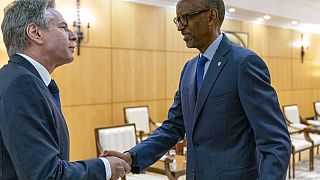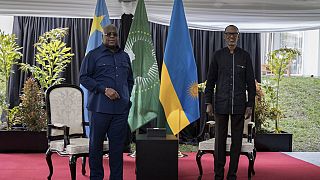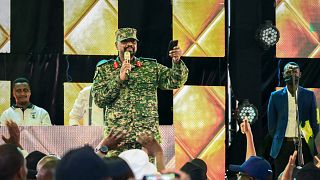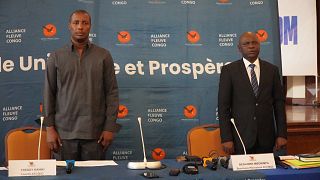Democratic Republic Of Congo
Congolese President Felix Tshisekedi denounced on Saturday "expansionist tendencies of Rwanda" which he again accused of supporting the M23 rebellion that has seized large swathes of territory in the east of the Democratic Republic of Congo in recent months.
"The year 2022 has witnessed the resurgence of Rwanda's expansionist impulses under the guise of M23," the head of state said during his state of the nation address to the two houses of parliament meeting in congress.
The DRC is the victim of an "unequivocal aggression by Rwanda", he insisted. For nearly 30 years, the Congolese east has been plagued by violence due to the presence of numerous armed groups "in the almost total indifference of the international community", said Mr. Tshisekedi.
The M23 ("March 23 Movement") is a former Tutsi-dominated rebellion that took up arms late last year and conquered large swaths of territory north of Goma, the provincial capital of North Kivu.
Since then, the DRC has accused its Rwandan neighbor of supporting the M23, a claim made by UN experts and publicly stated by the US and Belgian diplomats.
But Kigali denies this, accusing Kinshasa of collusion with the FDLR, a Hutu movement formed by some of the perpetrators of the 1994 Tutsi genocide in Rwanda.
A preliminary U.N. investigation released Thursday blames a massacre of at least 131 civilians (including 17 women and 12 children) on M23. According to the investigation, the victims were arbitrarily shot or stabbed to death in late November in Kishishe and Bambo, two villages in eastern DRC.
The African Union (AU) expressed its "indignation" at the massacres and denounced "these heinous crimes" in a statement issued Saturday in Addis Ababa.
The AU demands "that light be shed on these criminal acts" so that those responsible are brought to justice
The already conflictual relations between the DRC and Rwanda have worsened. Among the various diplomatic initiatives launched to try to resolve the crisis, a summit held on November 23 in Luanda decided on a cease-fire on the evening of November 25, followed two days later by a withdrawal of the M23 from the conquered areas.
Otherwise, the East African regional force currently being deployed in North Kivu would intervene to dislodge the rebels.
But so far the rebels are holding on to the positions they have conquered.
Tshisekedi, who came to power after the controversial December 2018 presidential election, has also said that 2023 will be essentially an electoral year.
"Respect for electoral cycles remains a requirement for the consolidation of our young and still fragile democracy," he said: "The government, while remaining open to the support of partners (...), is financing 100% the organization of elections."












00:56
Peace talks between DRC and M23 rebels 'moving in the right direction'
01:12
Eastern DRC tensions: UN points to Rwanda's role in AFC/M23 conflict
02:10
Congo-Rwanda deal: Uncertainty over whether the hostilities will end
01:47
'Minerals': Researcher explains U.S. interest in DRC-Rwanda truce
01:49
MONUSCO chief lauds DRC-Rwanda peace deal
02:13
Congo and Rwanda sign a US-mediated peace deal aimed at ending decades of bloody conflict